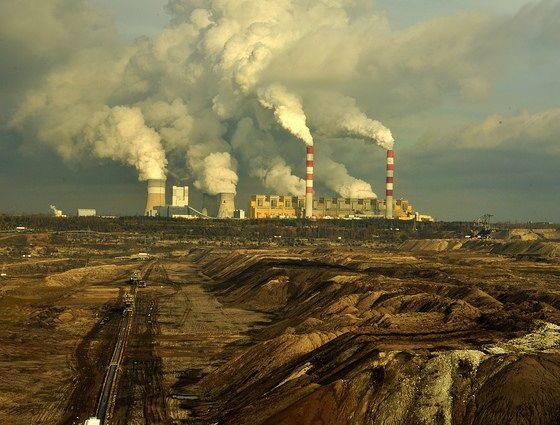

Energy
New lignite coal plants threaten EU climate change targets
The construction of a new wave of coal plants designed to burn Europe’s reserves of lignite could scupper the EU’s efforts to curb climate change, campaigners have warned.
In a new analysis, researchers from Greenpeace say the expansion of lignite mining could add 118 million tonnes of carbon dioxide to Europe’s annual emissions. This is roughly equivalent to half of Spain’s entire output in 2012.
Lignite – also known as brown coal – is more polluting and less efficient than conventional coal.
The use of the dirty fuel fell between 1990 and 2010, as former Soviet nations closed aging lignite plants. But now, demand is forecast to rise by as much as 5.4% by 2020.
Lignite fuelled power stations currently pump out 10% of the EU’s total CO2 emissions, while 19 new plants are at various stages of planning, approval and construction across the continent.
Over their average 40-year lifespan, these new plants alone could emit nearly 5 billion tonnes of carbon.
Greenpeace warn that these plants would lock in lignite consumption for decades, and undermine the EU’s efforts to cut carbon emissions by 80-95% by 2050.
“The expansion of lignite mining in Europe is today the most serious symptom of the continent’s chronic addiction to dangerous fossil fuels, and a massive threat to its efforts to tackle climate change,” Greenpeace energy analyst Jimmy Aldridge told the Guardian.
“The companies involved will continue for as long as they can – we need our political leaders to act in order to stop this situation from getting worse.”
Germany is currently the biggest consumer of lignite in Europe, while Poland has the biggest expansion plans. If both nations burn as much lignite as expected, they will use up half of their respective carbon budgets for 2020-2050, Greenpeace said.
Last week, thousands of protestors gathered in Lusatia, on the border between Germany and Poland.
Some 7,500 people formed a human chain to protest against a rumoured expansion of open cast lignite mining in the area – plans that would require the demolition of local villages.
Photo: Greenpeace Polska via Flickr
Further reading:
‘Underestimated’ coal emissions rising 4% per year – study
Coal the ‘fastest growing fossil fuel’ in 2013, says BP
Coal: spelling an end to a dirty heritage
World Bank announces plans to phase out investment in coal
Chinese coal pollution ‘responsible for 250,000 deaths’ in 2011


 Environment12 months ago
Environment12 months agoAre Polymer Banknotes: an Eco-Friendly Trend or a Groundswell?

 Features11 months ago
Features11 months agoEco-Friendly Cryptocurrencies: Sustainable Investment Choices

 Features12 months ago
Features12 months agoEco-Friendly Crypto Traders Must Find the Right Exchange

 Energy11 months ago
Energy11 months agoThe Growing Role of Solar Panels in Ireland’s Energy Future






























